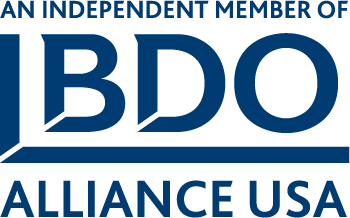The tax code includes numerous benefits for individuals with disabilities, but you cannot take advantage of these benefits unless you know about them and understand how they might benefit you and your special circumstances. Many of the benefits also apply to the parents of children with disabilities. Below are some tax saving opportunities:
Standard Deduction for the Blind
Taxpayers who are age 65 or older and individuals who are legally blind receive an additional standard deduction. The additional deduction is calculated by adding the taxpayer’s standard deduction based on his filing status plus an additional amount. In 2020, that additional amount for people who are blind or 65 and older is $1,300, or $1,650 for unmarried taxpayers.
Credit for the Elderly or the Disabled
Only a taxpayer who is qualified individual can claim the credit for the elderly or the permanently and totally disabled. A qualified individual is:
- a taxpayer who attained age 65 before the end of the tax year; or
- a taxpayer who is retired on permanent and total disability at the end of the tax year.
Child and Dependent Care Credits
An individual taxpayer may claim a nonrefundable credit for a portion of qualifying dependent care expenses paid during the year to allow the taxpayer, and/or the taxpayer’s spouse if filing a joint return, to be gainfully employed. The credit can be claimed only if the taxpayer has one or more qualifying individuals who have the same principal place of abode as the taxpayer for more than half of the tax year. A qualifying person is:
- a dependent of the taxpayer who is a qualifying child under the of age 13,
- a dependent of the taxpayer who is physically or mentally incapable of caring for himself or herself, and
- the taxpayer’s spouse if the spouse is physically or mentally incapable of caring for himself or herself.
The child and dependent care credit is computed by multiplying the taxpayer’s employment related expenses by an applicable percentage based on the taxpayer’s AGI. For taxpayers with AGI of $15,000 or less, the credit is equal to 35% of employment-related expenses. The credit is reduced by one percentage point for each $2,000 of AGI, or fraction thereof, above $15,000 through $43,000. Taxpayers with AGI over $43,000 are allowed a credit equal to 20% of employment-related expenses.
Earned Income Tax Credit
Many taxpayers with disabilities or taxpayers having children with disabilities qualify for the Earned Income Tax Credit, (EITC or EIC). Some disability retirement benefits qualify as earned income to claim the EITC. Also, you may claim a relative of any age as a qualifying child if the relative is totally and permanently disabled and fits all other EITC requirements.
Medical Expense Deductions
To gain a tax benefit, an eligible taxpayer must itemize their deductions on Schedule A, and their total medical expenses must exceed 7.5 percent of their adjusted gross income. In addition, to typical medical expenses there are other unusual deductible expenses that are incurred by individuals with disabilities. Below are a few of the eligible expenses available:
- Impairment-Related Capital Expenses. Amounts paid for special equipment installed in the home, or for improvements may be included in medical expenses, if their main purpose is medical care for the taxpayer, the spouse, or a dependent. The cost of permanent improvements that increase the value of the property may be partly included as a medical expense. The cost of the improvement is reduced by the increase in the value of the property. The difference is a medical expense. If the value of the property is not increased by the improvement, the entire cost is included as a medical expense. Certain improvements made to accommodate a home to a taxpayer’s disabled condition, or that of the spouse or dependents who live with the taxpayer, do not usually increase the value of the home and the cost can be included in full as medical expenses.
- Learning Disability. Tuition fees paid to a special school for a child who has severe learning disabilities caused by mental or physical impairments, including nervous system disorders can be included in medical expenses. A doctor must recommend that the child attend the school. Tutoring fees recommended by a doctor for the child’s tutoring by a teacher who is specially trained and qualified to work with children who have severe learning disabilities may also be included.
- Nursing Services. Wages and other amounts paid for nursing services can be included in medical expenses. Services need not be performed by a nurse as long as the services are of a kind generally performed by a nurse. This includes services connected with caring for the patient’s condition, such as giving medication or changing dressings, as well as bathing and grooming the patient. These services can be provided in the home or another care facility. Generally, only the amount spent for nursing services is a medical expense. If the attendant also provides personal and household services, these amounts must be divided between the time spent performing household and personal services and the time spent for nursing services.
Taxable Social Security Benefits
Social Security disability benefits may be taxable if a taxpayer receives other income that places them above a certain threshold. The majority of Social Security disability recipients, however, do not have to pay taxes on that income. The reason is most taxpayers on disability have little to no other income. Whether disability benefits are taxed depends on the taxpayer’s total income. To avoid taxation, your total income – determined by adding one-half of your disability benefits to all other sources of income, including tax-exempt interest – must fall below the threshold set by the Social Security Administration. In 2020, if you are single, the threshold amount is $25,000. If you are married and file jointly, it is $32,000.
Special Needs Adoption Credit
Families that adopt a child who is a U.S. resident or citizen whose state welfare agency deems them to have special needs will typically qualify for the maximum adoption credit of $14,300 for 2020 as qualified adoption expenses. Income limits apply to this credit, but in adoptions involving a child with special needs, the adoptive parents can claim the maximum credit regardless of whether they incurred qualified expenses. For purposes of the adoption tax credit, an adoption is considered a special needs adoption if a US child adopted from foster care (and some private domestic adoptions) receives adoption subsidy or adoption assistance benefits (which can include a monthly payment, Medicaid, or reimbursement of nonrecurring expenses).
If you have any questions regarding tax benefits available for the disabled, please contact the Crosslin tax team at (615) 320-5500. We are here to help!







